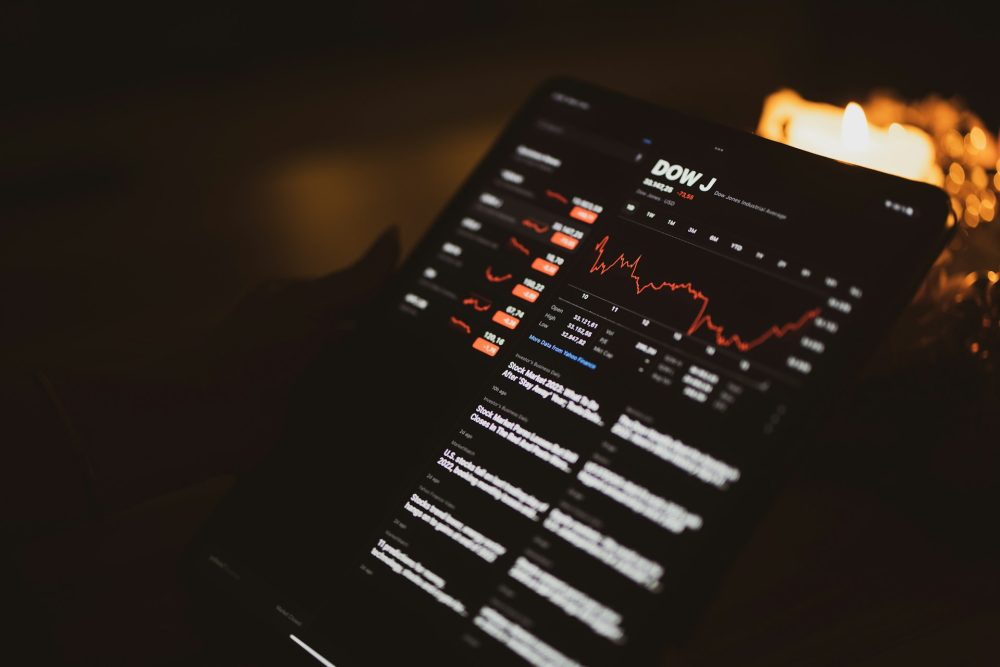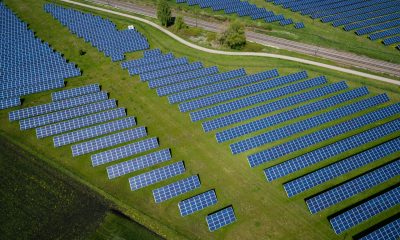Impact Investing
Green Bonds and Energy Transition Create ESG Opportunities for Investors
ESG investing has experienced a recent slowdown in both market performance and assets under management. Notably, investments concentrated on pure sustainable themes, like energy transition or green debt, faced challenges in the stock market in both 2022 and 2023. This downturn is attributed to aggressive central bank actions and the escalating conflicts in various regions, among other factors.

ESG investing has recently slowed down its brilliant trajectory, both in terms of market and assets under management.
Specifically, investments focused on purely sustainable themes (such as energy transition or green debt) suffered in the stock market in 2022 and also in 2023, in the face of aggressive action by central banks and the escalation of war in different parts of the world, among other factors.
Carlos Farrás, managing partner and CIO of DPM Finanzas, spoke about this during his intervention at the Social Investor Forum, on ESG themes, organized by Inversión magazine.
“All fixed income has suffered. And more so in the case of sustainable debt because they tend to be longer-duration bonds and, therefore, have more sensitivity in price to interest rate rises. Last year, they fell by more than double digits,” he said.
Read more about ESG investments and find the latest financial news of the day with the Born2invest mobile app.
Sustainable debt issuance falls (ESG)
Rate hikes are also one of the reasons for the recent drop in sustainable debt issuance from 27 percent to 22 percent of the total, according to David Maroto, director of financing at Telefónica.
“They have caused the cost of the projects to be higher, the level of demand from investors is also higher and the supply has been lower,” Maroto said.
Basically, companies find less incentive to finance themselves at high-interest rates. But, in addition, the existing fragmentation between the different green and sustainable bond standards has not helped either, according to Maroto.
“For us, it’s important to know which way to go, which label is really going to be the one that investors prefer. Currently and for us, it’s the ICMA (the International Capital Markets Association) principles. If there is no standardization, we can go towards stabilization of this type of investment and not see this boom again,” warned Telefónica’s director of financing.
However, the tightening of monetary policy has not only affected fixed-income
It has also had an impact on sustainable equities (especially those focused on the energy transition and renewables), since these are companies that have just risen 300 percent on the stock market and which, in addition, use high leverage to finance their projects.
For this reason, Andrea González, CEO of Spainsif, urged caution and to avoid triumphalism “when it comes to making grand declarations regarding the greater profitability of sustainable investment”.
Although there is a positive correlation in the long term in favor of ESG investments (above all, the higher the level of sophistication of the strategy and the experience of the manager), this “does not mean that it will systematically perform better in all cases”, warned González.

ESG investment opportunities
Whatever the case, what different participants at the Social Investor Forum agreed on was that sustainability represents a business and investment opportunity right now, if you know how to take advantage of it.
In this regard, Farrás said that both green bonds and shares linked to the energy transition are good investment ideas.
“On the fixed income side there is an opportunity because we are close to the end of the interest rate hike and, instead of being in Treasury bills that pay me a three-and-a-bit at 6 months, I can guarantee myself a bond at 4-5 percent for five years,” Farrás reasoned.
“Why? Because we don’t know how long yields are going to be up there, but normally they will go back down. In that sense, green bonds have longer durations and it makes sense to incorporate them into portfolios,” he added.
Finally, he also pointed to the possibility of diversifying the portfolio with a position in renewable projects through both listed and unlisted companies.
In this regard, he recalled that the regulator has lowered the minimum private equity investment tickets to 10,000 euros to bring this modality closer to the retail investor (previously they exceeded 100,000 euros).
__
(Featured image by geralt via Pixabay)
DISCLAIMER: This article was written by a third party contributor and does not reflect the opinion of Born2Invest, its management, staff or its associates. Please review our disclaimer for more information.
This article may include forward-looking statements. These forward-looking statements generally are identified by the words “believe,” “project,” “estimate,” “become,” “plan,” “will,” and similar expressions. These forward-looking statements involve known and unknown risks as well as uncertainties, including those discussed in the following cautionary statements and elsewhere in this article and on this site. Although the Company may believe that its expectations are based on reasonable assumptions, the actual results that the Company may achieve may differ materially from any forward-looking statements, which reflect the opinions of the management of the Company only as of the date hereof. Additionally, please make sure to read these important disclosures.
First published in SocialInvestor. A third-party contributor translated and adapted the article from the original. In case of discrepancy, the original will prevail.
Although we made reasonable efforts to provide accurate translations, some parts may be incorrect. Born2Invest assumes no responsibility for errors, omissions or ambiguities in the translations provided on this website. Any person or entity relying on translated content does so at their own risk. Born2Invest is not responsible for losses caused by such reliance on the accuracy or reliability of translated information. If you wish to report an error or inaccuracy in the translation, we encourage you to contact us.

-

 Business4 days ago
Business4 days agoThe Dow Jones Teeters Near All-Time High as Market Risks Mount
-

 Crowdfunding2 weeks ago
Crowdfunding2 weeks agoWorld4All, a Startup that Makes Tourism Accessible, Surpasses Minimum Goal in Its Crowdfunding Round
-

 Biotech1 day ago
Biotech1 day agoGut-Derived Molecule Identified as Early Marker and Driver of Atherosclerosis
-

 Crypto1 week ago
Crypto1 week agoThe Crypto Market Rally Signals Possible Breakout Amid Political Support and Cautious Retail Sentiment

























